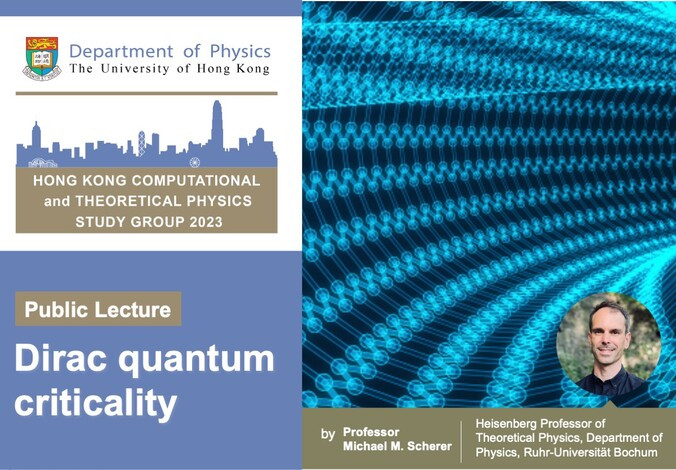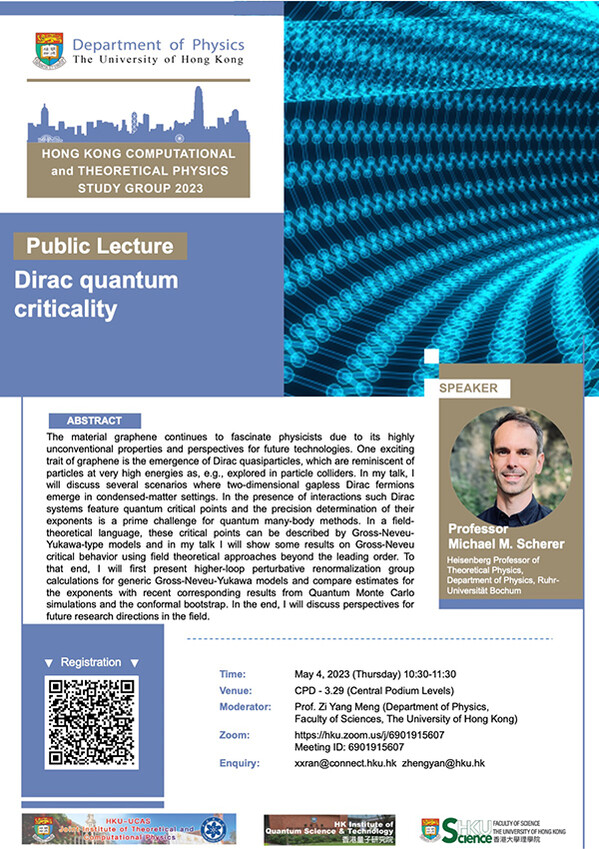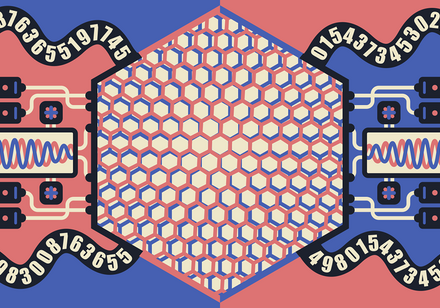(Public Lecture) Dirac quantum criticality

- Date & Time
- May 4, 2023 (Thursday) | 10:30-11:30
- Venue
- CPD - 3.29 (Central Podium Levels), Centennial Campus, HKU
- Speaker
- Professor Michael M. Scherer
Heisenberg Professor of Theoretical Physics, Department of Physics, Ruhr-Universität Bochum

The material graphene continues to fascinate physicists due to its highly unconventional properties and perspectives for future technologies. One exciting trait of graphene is the emergence of Dirac quasiparticles, which are reminiscent of particles at very high energies as, e.g., explored in particle colliders. In my talk, I will discuss several scenarios where two-dimensional gapless Dirac fermions emerge in condensed-matter settings. In the presence of interactions such Dirac systems feature quantum critical points and the precision determination of their exponents is a prime challenge for quantum many-body methods. In a field-theoretical language, these critical points can be described by Gross-Neveu-Yukawa-type models and in this talk Professor Michael M. Scherer will show some results on Gross-Neveu critical behavior using field theoretical approaches beyond the leading order. To that end, he will first present higher-loop perturbative renormalization group calculations for generic Gross-Neveu-Yukawa models and compare estimates for the exponents with recent corresponding results from Quantum Monte Carlo simulations and the conformal bootstrap. In the end, he will discuss perspectives for future research directions in the field.
Related link: https://quantummc.xyz/study-group/

Speaker Professor Michael M. Scherer
Heisenberg Professor of Theoretical Physics, Department of Physics, Ruhr-Universität Bochum
Professor Michael M. Scherer a Heisenberg Professor of Theoretical Physics, Department of Physics, Ruhr-Universität Bochumleader. The research of his group is focused on the exploration of emergent phenomena and correlated behavior of quantum matter and quantum materials. They develop and employ modern quantum field theoretical methods to understand and predict novel effects in a broad field ranging from condensed matter to particle physics.


